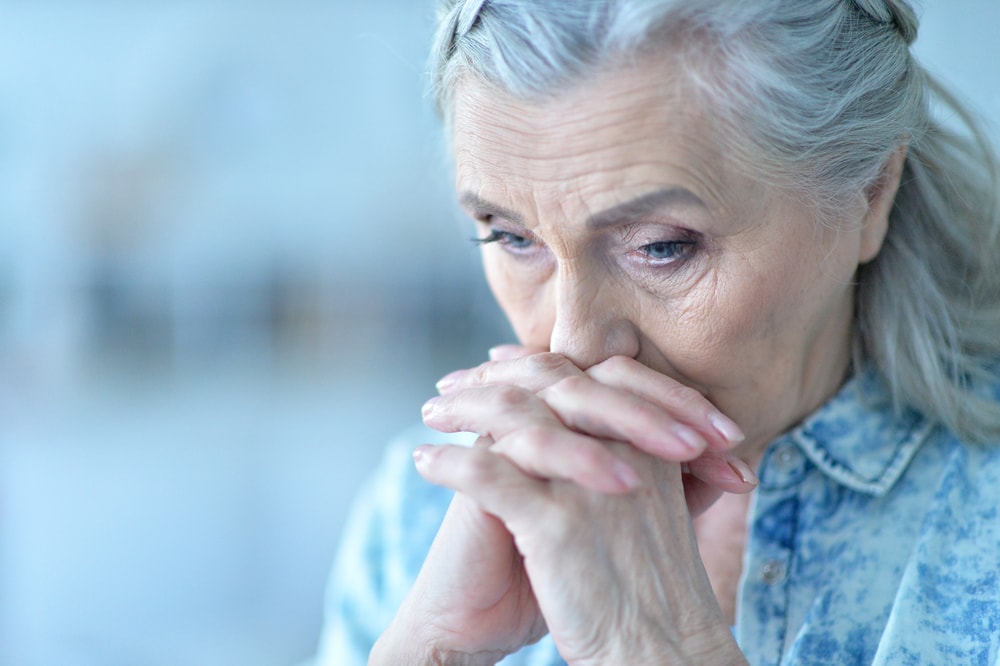We experience a wide range of emotions when faced with the death of a loved one. And those emotions aren’t the same for everyone. Perhaps, if everyone grieved in the same way, we could craft a formula for grief – something that worked every time. But that’s not how it works. There’s no “correct” response to death. Every grief journey is different, as are the emotions swirling around within us.
As you deal with emotional stress, it’s important to name your feelings and acknowledge them. Nationally renowned and respected grief expert Dr. Alan Wolfelt says, “I have worked with thousands of grieving people and they have taught me about many, many different thoughts and feelings after a death. Rest assured that whatever you are thinking and feeling, while in one sense your thoughts and feelings are completely unique to you, they are also usually a common human response to loss.” Whatever you’re feeling – whether it seems typical or unusual – is normal. There are, however, a few normal emotional reactions that are often viewed negatively – ones that we think we shouldn’t feel after a loss. Let’s take a few moments to discuss them.
Anger

If you are feeling angry, you are not alone. Your anger may stem from feeling helpless, powerless, or abandoned. It may also be directed at someone or something in particular, like the doctors, your loved one’s health choices, God, or even life in general.
It’s important to remember that being angry is a normal response. As long as you don’t hurt yourself or others, it’s good to find a way to vent your feelings. If you are able to articulate what you feel, then consider writing it down or talking with a safe person (either a counselor or a good friend). However, if your emotions are more explosive, you might try using a punching bag, running, or participating in some other physical activity to help you release your anger.
Also, pay close attention to your words and actions. You may be more irritable and easily triggered than normal, causing you to be short-tempered with those you love.
Anxiety, Fear

For some, death can stir up anxiety or fear. Questions may arise in your mind. Will I be okay? Does my life have any purpose after this? Will other people I love die soon, too? What if something happens to me?
Feelings of anxiety or fear are often triggered by feeling vulnerable or that your security is threatened. For example, a child who loses a parent may feel anxious or fearful about whether something will happen to their remaining parent as well. Other options are that fear and anxiety are learned responses (a previous experience has conditioned you to respond this way) or that you aren’t sure how you will be able to cope so your anxiety rises, or you are worried that other sad things might happen.
Guilt & Regret

Another common emotion after a loss is feeling guilty about what happened or what didn’t happen. However, in many cases, it is misplaced guilt, though that doesn’t make the feeling any less real. Someone might feel guilty for not being a donor match, for not calling or visiting more often, or for not doing more to prevent the death (such as in the cases of depression, suicide, or substance abuse).
If you are dealing with feelings of guilt, remember that, while it’s a normal reaction to feel this way, your feelings may not be accurate. Consider why you feel guilty and whether you might actually be feeling regretful. There is a difference. Guilt, by definition, means that you have intentionally done harm to the person who has died. However, regret means that you wish you had done something differently. The main difference between the two is intent.
If you determine that you are guilty of some wrongdoing, look for ways to make up for your mistake – write a letter to your lost loved one to apologize or ask forgiveness of other people affected by your actions. Also, try to forgive yourself. We all make mistakes. On the other hand, if you are feeling regret, work through your emotions. Determine what changes you can make to avoid regret in the future.
Relief

Relief may be one of the most common yet misunderstood emotions a person may experience after a death. We feel so strongly that we shouldn’t be relieved that we sometimes hide the fact that we are. But relief is to be expected, especially after a period of intense or prolonged suffering (as is the case with terminal illnesses). If a person dies after a long period of illness or was the cause (directly or indirectly) of increased stress in your life, it’s only natural to feel relieved when you are no longer suffering under high levels of stress. It doesn’t mean you wanted them to die or that you didn’t love the person. It simply means that you have been through a difficult time and are now emerging on the other side. Relief is normal and natural in such circumstances. As human beings, we are complex and can feel both relieved and sad at the same time. What you feel does not minimize your love for the person or the depth of your grief.
A Few Tips for Dealing with Your Emotions
- Don’t bottle them up. Let yourself feel what you feel.
- Realize and accept that your emotions are complex.
- Find a way to express yourself.
- Give yourself time to grieve and process. There’s no rush.
- If you need additional help, consider joining a grief support group or visiting a grief therapist.
Taking time to process and confront your emotions is a necessary part of every grief journey. Experiencing any or all of the emotions we’ve covered is normal, as are others we didn’t cover, like sadness, numbness, denial, and confusion. However, as time passes, and you do the work of mourning, the emotional intensity should lessen. As Dr. Wolfelt puts it, “Your feelings of loss will not completely disappear, yet they will soften, and the intense pangs of grief will become less frequent. Hope for a continued life will emerge as you are able to make commitments to the future, realizing that the person you have given love to and received love from will never be forgotten. The unfolding of this journey is not intended to create a return to an ‘old normal’ but the discovery of a ‘new normal.’”
Embrace your grief in all its complexities and allow yourself to feel all of your emotions (they are natural!). In time, if you do the work of mourning, you will find your “new normal.”




